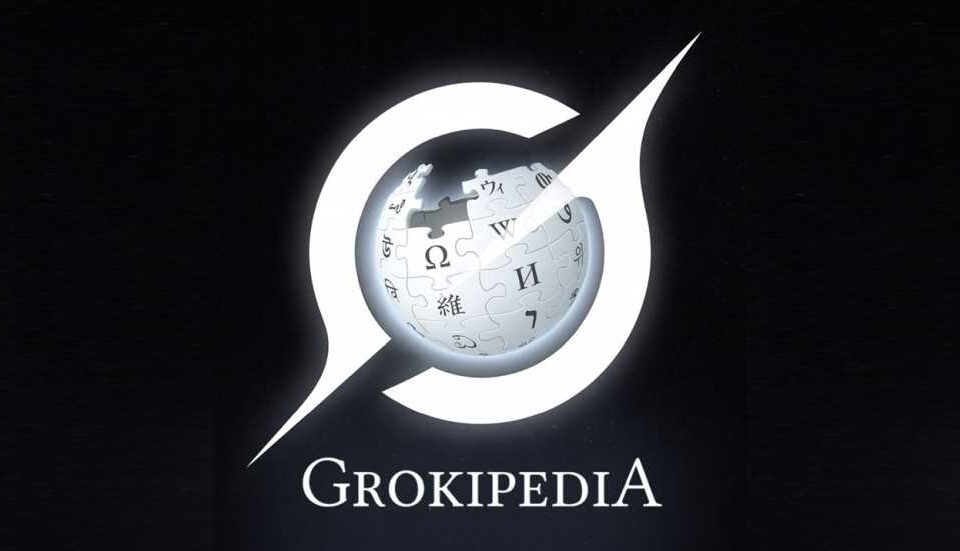Elon Musk Unveils Grokipedia, xAI’s Wikipedia Alternative

Elon Musk isn’t hiding his frustration with Wikipedia. On Tuesday, he announced Grokipedia, an AI-powered encyclopedia he claims will surpass Wikipedia in accuracy and neutrality. The project, led by his company xAI, ties directly into his broader ambition to, as he put it, “understand the universe.”
The announcement came on X in response to a post by tech investor David Sacks, who accused Wikipedia of being captured by “an army of left-wing activists.” Musk replied bluntly: “We are building Grokipedia @xAI. Will be a massive improvement over Wikipedia. Frankly, it is a necessary step towards the xAI goal of understanding the Universe.”
Grokipedia: xAI’s Wikipedia alternative
Why Now
The timing wasn’t accidental. Musk’s comments landed just hours after Wikipedia co-founder Larry Sanger went on Tucker Carlson’s show to critique the platform. Sanger argued Wikipedia had long since abandoned neutrality, pointing to blacklists of sources, hidden government influence, and editing patterns that favor progressive viewpoints. He described the site as an “organ of Establishment propaganda.”
Musk’s plan to open-source Grokipedia’s results echoes Sanger’s push for transparency. But details remain thin—no word yet on launch timelines, technical architecture, or how xAI intends to guard against bias in its own system.
Hints of this direction surfaced weeks earlier when Musk said Grok, xAI’s chatbot, could “rewrite Wikipedia” by stripping out falsehoods and layering in context through synthetic data corrections. In that light, Grokipedia looks like a natural extension of Grok’s supposed truth-seeking design.
The Reactions
The announcement lit up X, generating thousands of replies in minutes. Supporters cheered it as long overdue. Judicial Watch President Tom Fitton blasted Wikipedia as a “smear machine for the Left,” earning Musk’s agreement. Others, like tech commentator Brian Roemmele, framed Grokipedia as a way to break free from entrenched dogma.
Users such as Mark Kretschmann and Paul A. Szypula applauded the project as an “unbiased alternative” and “great news for facts.” Some even volunteered to pitch in—one user offered to translate articles into Portuguese.
But not everyone was convinced. Critics quickly branded the project “Muskopedia” and questioned whether it would simply replace one slant with another. Others pointed out Grok’s own flaws, noting the chatbot often repeats Wikipedia’s errors wholesale. Skeptics asked the hard question: if Grokipedia still draws on the same internet data, how can it really be better?
The Challenges Ahead
Building a knowledge platform that avoids bias may be even harder than Musk suggests. Wikipedia’s weaknesses stem from human editors, but an AI-first approach comes with its own risks. Large datasets can introduce algorithmic bias, while centralizing control under xAI opens the door to criticism of its governance.
Even Sanger, who has every reason to cheer on an alternative, has warned that any system—human or AI-driven—can be influenced by governments or powerful interests. That warning applies just as much to Grokipedia.
What It Means
Whether Grokipedia becomes a true rival to Wikipedia or fades as another Musk side project will depend on execution. The promise of open-sourcing results is ambitious, but without a clear process for verification, transparency, and accountability, it risks repeating the very flaws it claims to fix.
For now, the project has succeeded in sparking a debate that cuts to the core of online knowledge: who controls it, how it’s curated, and whether neutrality is even possible. Musk has cast Grokipedia as a bold step in xAI’s quest to “understand the universe.” The rest of us are left to watch whether that goal leads to a more reliable source of truth—or just another internet battleground.




